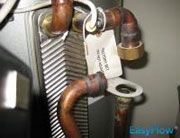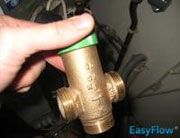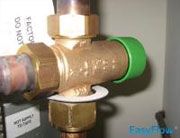- Home
- How to
- How to
- Services
- Services
- Maintenance Plan
- Location
- Guides
- Guides
- No Hot Water – Self help
- Unvented Water Heater
- Unvented Water Heater Faults
- G3 Building Regulations
- Thermal Store Water Heaters
- Thermal Store Faults
- Gledhill ElectraMate
- Gledhill PulsaCoil
- Gledhill Torrent
- Gledhill Stainless Lite
- OSO Unvented Heater
- MegaFlo – Heatrae Sadia
- Santon Premier Plus
- Albion
- Manco Riverstream and Powerstream
- Manco Gladiator & Stirling
- Telford Tempest
- Safety Considerations Unvented Cylinders
- Reduce Your Water Heating Bill
- Range Tribune
- About Us
- About us
- Forums
- Contact

Unvented Water Cylinder Engineers
G3 Qualified
-
Call Now
0161 941 5571
Gledhill PulsaCoil
Gledhill PulsaCoil
Thermal store water heaters provide valuable benefits without the drawbacks found with unvented systems. While there are several well-known manufacturers of thermal store systems on the market, the Gledhill PulsaCoil is one of the most established. Produced for a number of years, there are many different models in use today. All of them supply mains pressure water at the taps and use off-peak electricity, and their overall operation remains similar from one model to the next. The only PulsaCoil model still in production is the PulsaCoil BP. All others have been discontinued, including the following:
- The PulsaCoil 111
- The PulsaCoil A Class
- The PulsaCoil 2000
While they are no longer being manufactured, spare parts are still available, meaning that they can be repaired, rather than being replaced. On this page, we have provided a wide range of information about PulsaCoil water heaters to help you understand and identify potential faults within your system.
How Does the PulsaCoil Hot Water Heater Work?
All PulsaCoil models made by Gledhill are thermal store systems. This means they work in the reverse of unvented hot water heaters. Interestingly, they’re capable of saving both water and energy, reducing utility bills.
Think of a thermal store heater as a sealed system. Cold water enters the heater, is warmed, and then recycled. The heat from the hot water is transferred to cold water in the mains through a heat exchanger. These exchangers can take a couple of different forms, and Gledhill has use them all at different points in time. One type of exchanger is a coiled tube that runs through the centre of the cylinder. Cold water is piped through this, where it absorbs heat before being sent on to the taps. Another type uses a plate heat exchanger with pass-through holes drilled in it. Water moves through the holes and absorbs heat.
There are other setups that have been used on Gledhill PulsaCoil hot water heaters. Some use blending valves (generally with centre coil systems), while others use PCBs to regulate the flow of hot and cold water, blending them to create a safe temperature.

PulsaCoil Heat exchanger

Replacement PulsaCoil Blending Valve

Blending Valve in position
Gledhill PulsaCoil Faults
In this section, we’ll cover some of the most common faults experienced with PulsaCoil models, as well as detailing which models are more susceptible to each type of fault.
No Hot Water – Burned out Immersion Heater
While the cause of a no hot water situation might be related to fuses, electrical switches or circuit breakers, it could be related to a burned out immersion heater. All Gledhill PulsaCoil models use an immersion heater to warm the water in the tank. If the heater does not show a reading of 19 to 20 ohms across the terminals, it has failed and will need to be replaced.
Empty Expansion Tank
All Gledhill PulsaCoil models use an expansion tank to top off the boiler when water is lost through evaporation and to absorb any increase in water volume during the heating process. The expansion tank is located above the heater itself, sometimes well above it. If the expansion tank is empty, it is a sign of a problem. This could range from low water volumes in the tank itself to leaks.
Blending Valve Faults
The PulsaCoil BP and PulsaCoil 111 are subject to problems with the blending valve. The valve is responsible for mixing hot and cold water to reach a safe temperature of 55 degrees centigrade before the water is sent to the taps. As the valve wears, it will begin to fail and the flow of hot water will eventually decline to the point that no hot water is available at the taps. However, other problems can cause similar symptoms, including an incorrectly adjusted valve. Turn the valve clockwise to increase the temperature of the water at the taps.
Relay Faults
The PulsaCoil 111 and PulsaCoil A Class are both subject to relay faults. Think of a relay as a switch – it receives a signal and allows contact to be made, closing a circuit to active the immersion heater. If the relay fails, the circuit will remain open and the immersion heater will not operate.
Manual Reset Needed on Rod Thermostat
PCB Failure
The PulsaCoil 111, PulsaCoil A Class and PulsaCoil 2000 all use a printed circuit board (PCB) to control the system, and all are subject to faults. Burn out is very possible with any electronic component, and failure of a PCB can lead to any number of symptoms. Look for signs of damage to the PCB itself, such as melted plastic, burn/scorch marks and the like. Note that PCBs cannot be repaired. They can only be replaced.
Pump Failure
The PulsaCoil 111, PulsaCoil A Class and PulsaCoil 2000 all use pumps to move water through the cylinder, out the top and then back into the bottom of the cylinder. However, pumps are subject to wear and tear and will eventually fail. They should be inspected annually to verify performance and condition. Most pumps used on Gledhill hot water heaters have a resistance range of between 170 and 175 ohms. As the pump deteriorates over time, resistance will increase and efficiency will suffer. This can cause fluctuations in hot water temperature, which will be more noticeable during the winter. Running the system with a damaged pump may also cause damage to the boiler.
Annual Service, Repairs and Maintenance from EasyFlow
At EasyFlow, we offer annual service for all types of Gledhill PulsaCoil hot water heaters. We can also offer repair services when your system experiences a fault. We do charge a call-out fee to identify faults, and will then submit a quote for the repair. If you accept our quote, we reimburse a portion of the call-out fee. Our pricing page offers more information on our rates and set price repair work, as well as our annual service package. EasyFlow is a Country and Town Limited Service and provide Gledhill boiler repair and maintenance service throughout Manchester, Liverpool and the surrounding areas.
If you need assistance with any hot water heater repairs, to schedule hot water heater maintenance, or to install a new hot water heater, call EasyFlow at 0800 433 4043
Call an EasyFlow Engineer Today
Find out more about EasyFlow Maintenance Plans
Our maintenance plans are designed to ensure our customers enjoy peace of mind, and constant hot water. We keep your hot water flowing while minimising your costs and eliminating stress. Let our experts identify and correct water heater faults, while you enjoy low monthly payments.
Joanne, Warrington
8 January 2024
Annual Service
Richard, Bolton
14 December 2023
Annual Service
Brian, Wilmslow
15 December 2023
Annual Service
Waheed, Hertfordshire
1 January 1970
No Hot Water
Excellent service as usual.Despite the terrible weather and the lift being out of order
JUDITH, Glossop
28 December 2023
Annual Service
Peter, Liverpool
30 November 2023
Annual Service
Jonathan, Liverpool
22 November 2023
Replacement Valves
Dominic, Chorlton
6 November 2023
Heating Control Replacement
An excellent service as usual and Chris was very helpful and informative.
Derek, Chester
2 October 2023
Annual Service

© 2025 Country & Town Limited. All rights reserved EasyFlow is a Country & Town Limited service







Find out what our clients are saying about the services we provide
Click to view